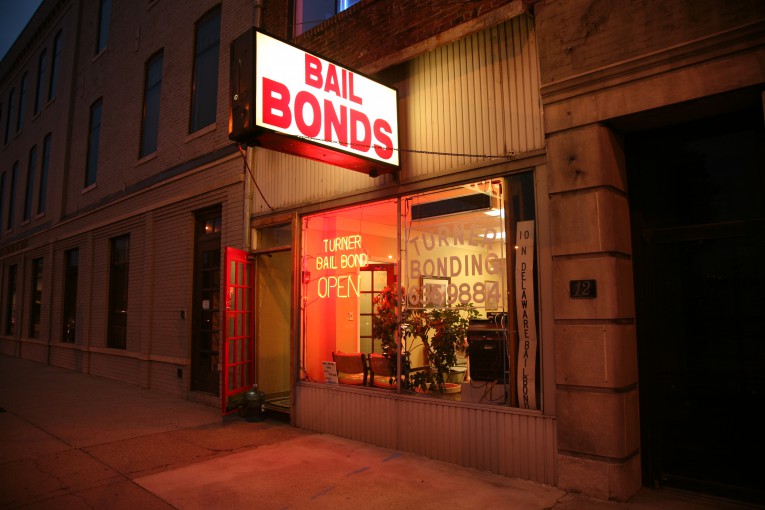

It was a highly anticipated move by the California Judicial Council and while we captured some reaction from across the state – but interestingly enough, other than Jackie Lacey, a DA facing a runoff in November, the DA leaders in California including the California District Attorneys Association along with individual DA’s like Sacramento’s Anne Marie Schubert and Yolo County’s Jeff Reisig were silent on the ruling.
Here are some reactions we did capture.
Yolo County Public Defender Tracie Olson:
Two people are charged with the exact same crime. One is rich. One is poor. One pays money in order to go home. The other stays in jail. That’s our current bail system and one of the causes of mass incarceration.
It took a worldwide health crisis to lower bail to amounts that public defender clients can afford, which is $0 in most misdemeanor and low-level felony cases.
The new bail schedule is designed to alleviate the problem of high bail in cases that have been delayed due to the COVID-19 crisis. However, the new bail schedule is considered temporary and is set to terminate once the crisis is over. This means, once again, that people will be stuck in jail simply because they’re too poor to buy their way out.
San Francisco Public Defender Mano Raju:
This decision will reduce the flow and the churn of people into the jails coming into the front end of system which will hopefully reduce impact of the delay that the lack of arraignments and preliminary hearings create in releases on the back end.
I think it’s also important that they recognized the huge importance of individual’s personal appearance at hearings and made it clear that they have to personally waive their appearance in order to  conduct hearings via video because the purpose of these hearings is to present a fuller picture of individuals and the fact, our ability to do that is severely diminished if these hearings are conducted remotely.
conduct hearings via video because the purpose of these hearings is to present a fuller picture of individuals and the fact, our ability to do that is severely diminished if these hearings are conducted remotely.
Jessica Bartholow, policy advocate at Western Center:
Ending money bail has been a long-time advocacy position of Western Center and we are grateful for this temporary pause of the unconstitutional practice of denying people freedom while they await trial unless they can afford to pay bail.
We are hopeful that the Judicial Council will ensure that bail data collected during this time, which is required by Senate Bill 36 and is intended to prevent and document racial bias in pre-trial jail detention decisions, will still be pursued and reported to the Legislature during the pandemic, and that the Council will work to permanently end money bail beyond the pandemic.
Michael Mendoza, National Director at #cut50, a program of the Dream Corps:
The Judicial Counsel’s decision to set an emergency bail schedule to $0, for most offenses, will save lives.
We at #cut50 welcome this temporary solution during this pandemic and look forward to ending the practice of money bail as we move past the immediate risk of COVID-19’s rapid spread and toward a justice system that prioritizes healing and restoration over punishment. More needs to be done beyond this temporary measure to keep people in jails and prisons safe – and to reduce the number of people behind bars. We urge all local, state and federal lawmakers to continue taking urgent steps now, before more lives are needlessly lost.
Los Angeles County District Attorney Jackie Lacey:
I applaud the Chief Justice and the Judicial Council for adopting a statewide zero bail for people charged with most misdemeanors and low-level felonies.
In Los Angeles County, we implemented a zero-bail measure last week that allows us to further reduce the number of people in county jails and courthouses. I appreciate the collaboration among criminal justice leaders in Los Angeles County that has resulted in the rapid deployment of new and innovative approaches as we work to try to stop the spread of COVID-19 in our community.
George Gascon – Candidate for LA DA:
California continues to solidify its role as the national leader in adopting aggressive, life-saving initiatives during this crisis,” said former District Attorney and Assistant Chief of the LAPD, George Gascón. “The novel coronavirus has forced our system of justice to confront a not-so-novel question, one that largely defined the criminal justice reform movement even prior to the pandemic: Does keeping huge numbers of people in-custody on small-time offenses pose a greater threat to us all than letting them out?
Prior to Covid-19 the answer was well-studied and abundantly clear, but the pandemic has made the implications of mass-incarceration far more tangible and lethal than ever. This virus does not care if you’re a prosecutor, victim, or a defendant. Innocent or guilty, this virus can still kill you.
While New York’s leaders are taking us backwards, California’s leaders are demonstrating that they are up to the task of protecting the health and wellfare of our community. The same cannot be said of LA’s criminal justice leaders who must make an urgent, life-saving course change to protect the public from the threat posed by this pandemic.
To sign up for our new newsletter – Everyday Injustice – https://tinyurl.com/yyultcf9


“However, the new bail schedule is considered temporary and is set to terminate once the crisis is over.”
My hope is that the temporary end to cash bail will allow opponents to see the benefits of the end of this inequity. It will benefit not only those who do not remain incarcerated only for lack of money in terms of education, job retention, and family relationships, but will also demonstrate the benefits to taxpayers who will not have to pay the cost of incarceration of nonviolent offenders.